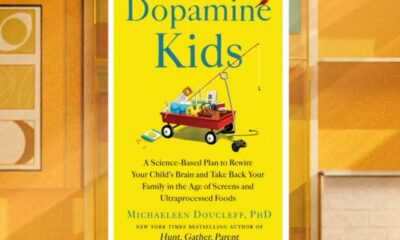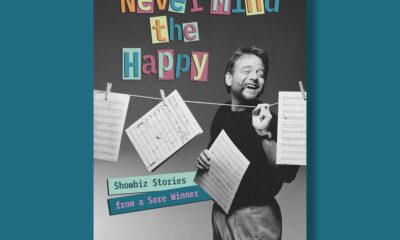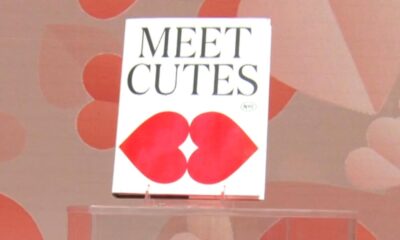Entertainment
Book excerpt: “Heart Life Music” by Kenny Chesney with Holly Gleason
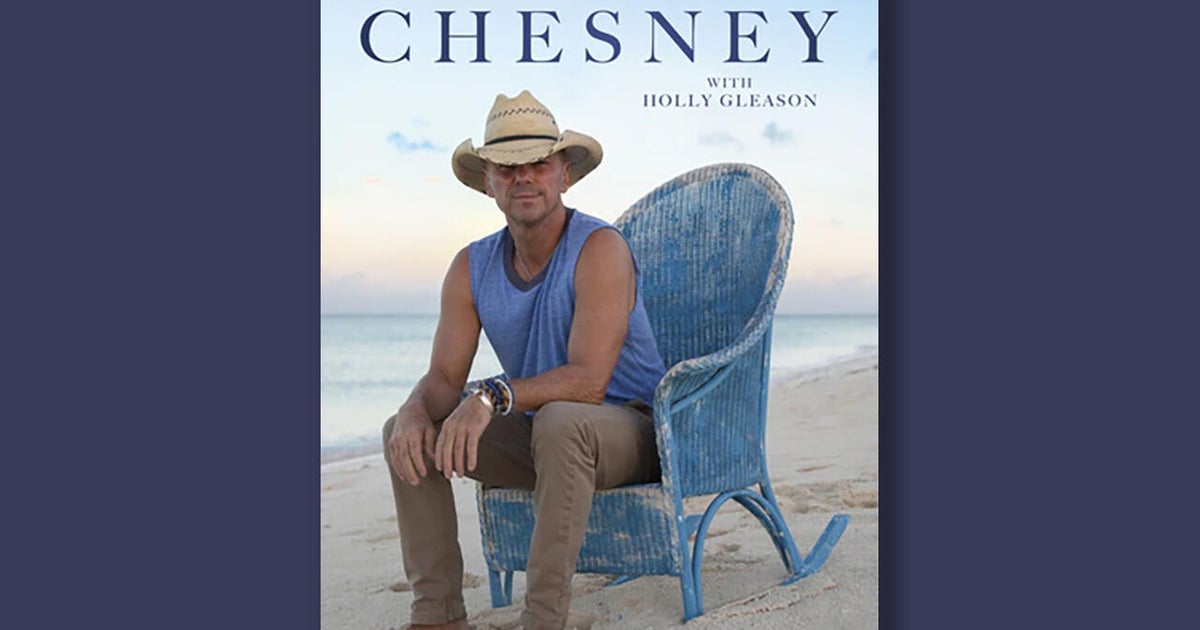
William Morrow
We may receive an affiliate commission from anything you buy from this article.
Over the past three decades, Kenny Chesney has been one of the most celebrated singers in music. In his first book, “Heart Life Music” (written with journalist Holly Gleason, to be published Tuesday by William Morrow), Chesney recounts his life’s journey, from East Tennessee, to No Shoes Nation and beyond.
Read an excerpt below, in which he writes about a soulful collaboration with singer-songwriter Grace Potter – and don’t miss Lee Cowan’s interview with Kenny Chesney on “CBS Sunday Morning” October 26!
“Heart Life Music” by Kenny Chesney with Holly Gleason
Prefer to listen? Audible has a 30-day free trial available right now.
Grace
There was a show on tv called “Let’s Make A Deal.” People would be contestants, hoping host Monty Hall would pick them to compete for prizes. New cars, new kitchens with all the appliances, expensive watches. You had to pick.
One of two things: color tvs and washer/dryer sets, or what was behind Door No. 3, knowing it could be a wheelbarrow with some grass seed, or a new car.
I’ve always been attracted to what’s behind Door No. 3. That idea of the big unknown you can’t see always appealed to me. The seeker inside has chased the unknown all my life.
When you’re a dreamer, you can’t not take Door No. 3. That mentality fuels you. Seeking inspiration, wanting to find out has risk involved. Some Door No. 3s don’t work out. But Grace Potter? She’s the epitome of why Door No. 3 is always better than playing it safe.
“You & Tequila” showed up in my email in the middle of the night.
I remember listening, thinking, “Damn…,”
That idea of a person you can’t quit, because they’re so addictive is real. You can’t resist, only overdo it to the point of poisoning yourself hit me. I called Matraca Berg, asked if there was a demo with a man singing it; she had one. Hearing Tim Krekel sing it hit me even harder.
We cut it really simple. That pull between what you want and knowing you shouldn’t made “You & Tequila” burn into people.
We were about done with Hemingway’s Whiskey. I wanted something to make it shine. Buddy Cannon and I were talking about who might sound good; Clint Higham, my co-manager, even reached out to Irving Azoff about the Eagles, since this sounded like a classic Laurel Canyon song.
Then the woman who sent me the demo asked, “Why don’t you get Grace Potter? She captures that haunted and haunting feeling.”
What makes Grace Potter, the ultimate Door No. 3, was the mystery. The hippie songwriter/rock girl.
Once she was suggested, as much as it made no sense on paper, I knew she was the person we needed.
I listen to a lot of music at night in the Virgin Islands. No light pollution, you can drift in the sounds. I’d been given Grace’s live CD. “Apologies” poured out of the speakers.
Motionless on a chaise lounge, when I heard Grace’s voice – so soulful, but beautiful and real – I was floored. Nobody in my life had heard this voice except my friend. I felt blessed.
She wrote her own songs. She had a band, wasn’t overproduced. Really listening, it was how she played that B-3 organ, but especially how she sang those songs.
I looked up at the sky and exhaled. She sounded like coming home.
When we put her on “You & Tequila,” all she knew about me was “She Thinks My Tractor’s Sexy” because the Eagle in Burlington, Vermont had played it to death.
Was it even possible? Grace had finished a European tour, traveled 24 hours with no sleep and was landing in America. We laugh now, but she listened to the demo on the rental car shuttle having cleared customs.
She was tired. She missed her family. And we needed her in Nashville within 48 hours to make the deadline for mastering – or we’d have to move the record. Her manager wasn’t optimistic. My friend insisted, “Give her the song.”
Thirty minutes later, we had a yes. Thirty hours later, Grace Potter landed in Nashville in a flowy leopard print dress, walked into Blackbird Recording Studios and changed both of our lives. Brash, smart and funny, she oozed music. She told wild stories, made some people blush and asked us what we were thinking.
Buddy suggested, “Get in the booth and put your headphones on. See how it feels to you.”
Probably warming up, she was humming. Then that “ooooohOOOOOHohhhh” she does on the record rolled out.
“Do some more of that.”
Two or three takes later, we were done. We’d talked longer than she was in the vocal booth. Even before it was mixed, we knew it was something. That’s the thing: you know.
It was my birthday. I asked her and her boyfriend if they’d like to have dinner. We went to Sunset Grille, sat outside on the patio and laughed. We came from musically different places; her country music was Willie, Townes Van Zandt and Lucinda Williams. But we were of the same heart, same small town, family-oriented life.
She was tired, so we didn’t hang long. When I got up to leave, she followed me, jumped in the passenger seat of my car, and announced, “I don’t know what the future holds, but we’re going to be friends for life.”
Grace Potter knew things. I’ve always believed there are things in our lives that were pre-determined; set into motion by some larger power. Grace was absolutely one.
From “Heart Life Music” by Kenny Chesney with Holly Gleason. Copyright © 2025 by Kenny Chesney. Reprinted by permission of William Morrow, an imprint of HarperCollins Publishers.
To hear Kenny Chesney and Grace Potter perform “You and Tequila,” click on the video player below:
Get the book here:
“Heart Life Music” by Kenny Chesney with Holly Gleason
Buy locally from Bookshop.org
For more info:
- “Heart Life Music” by Kenny Chesney with Holly Gleason (William Morrow), in Hardcover, Large Print Trade Paperback, eBook and Audio formats, available Nov. 4
- kennychesney.com
Entertainment
Princess Anne marks milestone moment at UCL with historic Cloisters reopening
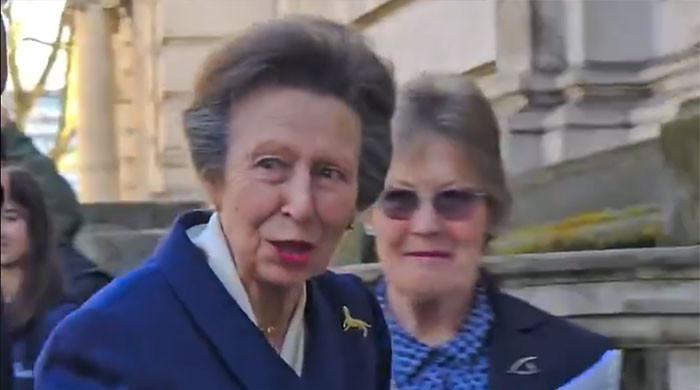
Princess Anne carried out another engagement on Thursday at the historic Bloomsbury campus of University College London.
The Princess Royal made a low-key arrival at UCL to meet students, academics and staff who are helping mark a milestone moment in the university’s long history.
The visit centred on the formal reopening of the beautifully restored Wilkins Building Cloisters that forms part of the university’s original 19th-century design.
During her time on campus, Anne spoke with those involved in the restoration project and learned more about how the university is celebrating its landmark anniversary.
Anne attended the event in her role as Chancellor of the University of London.
The last time a British monarch visited the university for such a milestone was nearly a century ago, when King George V and Queen Mary attended celebrations marking UCL’s centenary in 1927.
Earlier, the horse-loving royal was also spotted arriving at the National Equine Forum at One Birdcage Walk in Westminster, a key gathering for experts across the equestrian world.
On March 3, she paid a visit to The Old Department Store, where a once-traditional high street landmark is beginning a new chapter as a bustling community hub.
The royal guest was given a tour of the revitalised building, hearing about the ambitious “High Street Reimagined” vision that aims to transform the historic space into a centre for social enterprise, collaboration, and local innovation.
One of the highlights of the visit saw the Princess Royal explore several of The Grace Network’s social enterprise ventures operating within the space.
Entertainment
Here’s what it plans to do

China has unveiled its ambitious new five-year plan that focuses heavily on artificial intelligence as leaders aim to secure an edge in an intensifying rivalry with the United States.
The five year plan was released at the opening session of the National People’s Congress, calling for sweeping adoption of AI across multiple sectors including manufacturing, healthcare, education, and logistics.
The 141-page blueprint introduces a broad “AI+ action plan” focusing on integrating technology throughout the Chinese economy.
Premier Li Qiang pointed out that technology as a pillar of what China terms “new quality productive forces,” suggesting a stronger emphasis than in earlier policy outlines.
The government made clear that it will pursue “decisive breakthroughs in key core technologies” and seize the “commanding heights” of global innovation.
Major focused fields include quantum computing, 6G telecommunications, humanoid robots, nuclear fusion and brain-computer interfaces.
In the next five years, China aims to reduce reliance on foreign technology specially advanced semiconductors due to rising trade tensions with the U.S.
Beside technology, the government also announced a 7 & increase in defense budget for 2026.
Entertainment
Former "Survivor" winner Savannah Louie on her elimination from season 50
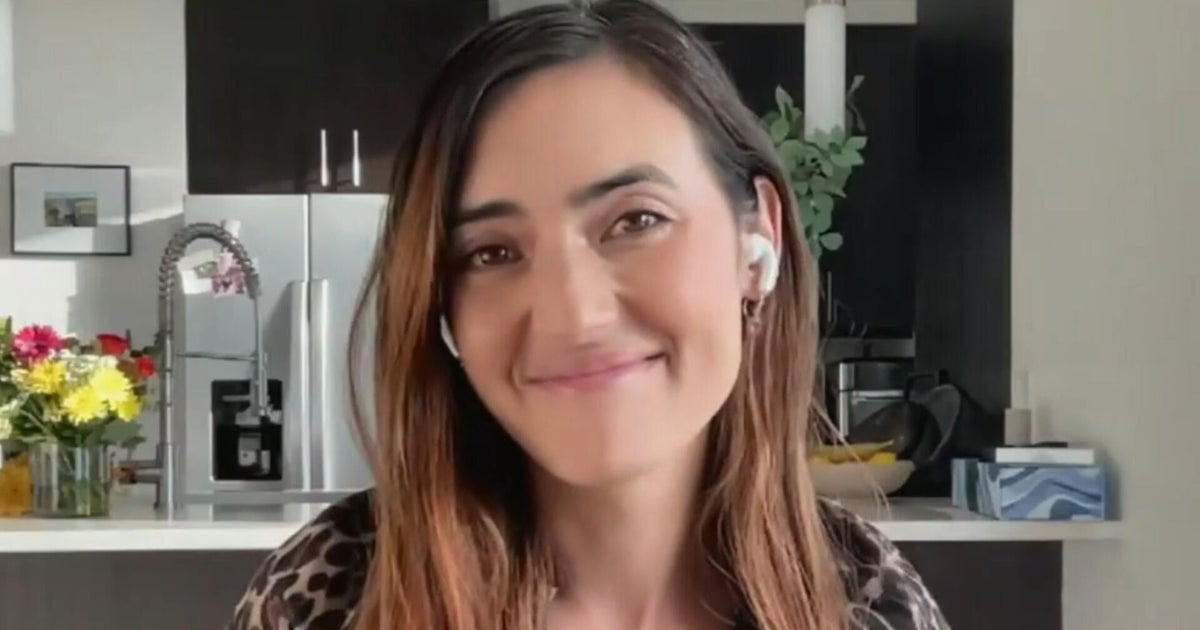
Savannah Louie, who won season 49 of “Survivor,” talks about her early elimination from the show’s 50th season, challenges she faced as a former winner and the lesson she took away from the game.
Source link
-

 Politics1 week ago
Politics1 week agoWhat are Iran’s ballistic missile capabilities?
-

 Business7 days ago
Business7 days agoIndia Us Trade Deal: Fresh look at India-US trade deal? May be ‘rebalanced’ if circumstances change, says Piyush Goyal – The Times of India
-

 Business1 week ago
Business1 week agoAttock Cement’s acquisition approved | The Express Tribune
-

 Politics1 week ago
Politics1 week agoUS arrests ex-Air Force pilot for ‘training’ Chinese military
-

 Fashion1 week ago
Fashion1 week agoPolicy easing drives Argentina’s garment import surge in 2025
-

 Business1 week ago
Business1 week agoHouseholds set for lower energy bills amid price cap shake-up
-

 Fashion7 days ago
Fashion7 days agoTexwin Spinning showcasing premium cotton yarn range at VIATT 2026
-

 Sports1 week ago
Sports1 week agoSri Lanka’s Shanaka says constant criticism has affected players’ mental health


